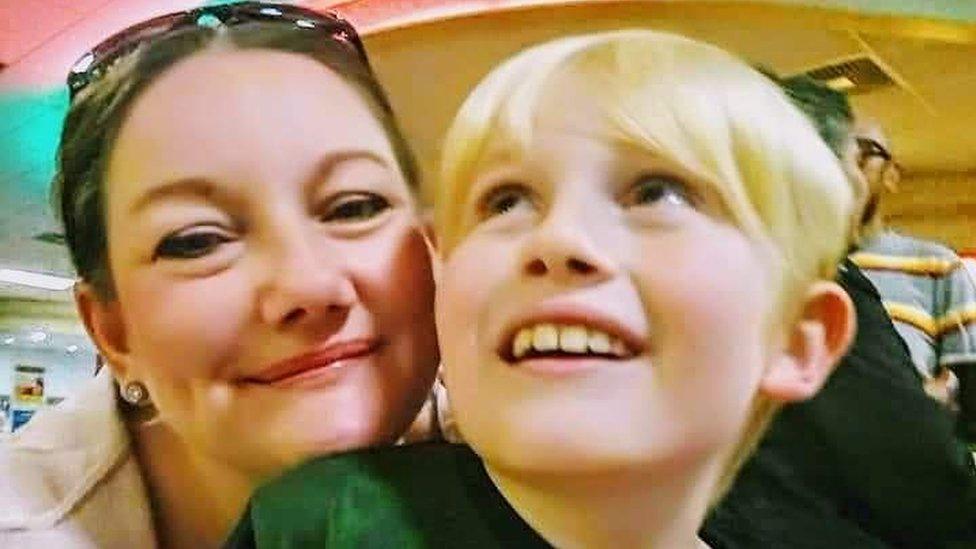Covid: 'I don't want a holiday, I want to go to school'
- Published
Piers says he does not want to go on holiday, he only wants to go to school
All Piers says he wants to do is go to school every day. He does not even want a holiday - just school, school and more school.
But Piers, who lives with a form of autism, has not been able to finish the final year of his maths GCSE full-time in the classroom with his friends and teachers because of lockdown.
"I really love school," said the 18-year-old. "It's my favourite thing."
But Piers, like some of his friends, has only been in class one day a week.
The head teacher at his south Wales school, for children with special educational needs, says that while missing large parts of their education has the "biggest impact" on children with additional needs, school is a "safety net" for both pupils and their families.
And how Piers, who also has learning difficulties and sensory issues, has missed being in the classroom and around familiar faces.
"I don't want a holiday at all this year," he said.
"I just wanted to go to school every day. I only get to do one day a week as it is my final year."
He has struggled with home-schooling because of his "sleeping issues" - and the strict lockdowns in Wales have not just affected Piers' education but his mood too.
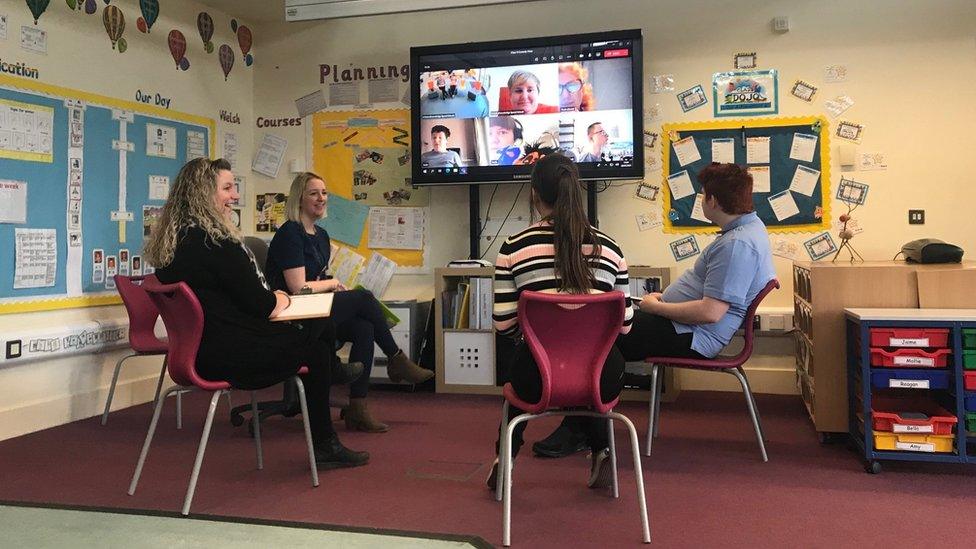
Maths GCSE students Piers and Amy join a digital lesson during their one day in school a week
"I'm not able to go out and my mental health is deteriorating," said Piers, who lives in Monmouth.
"I've been very upset and sobbing every day. I've a sweet tooth and wanting to eat lots of chocolate.
"I love going to school because it is learning - you are made to do work - because when I'm at home I want to sleep all of the time. I'd rather be kept on my toes and be busy."
Piers' story is one of how a student with additional educational needs is dealing with the uncertain challenges of a global health emergency.
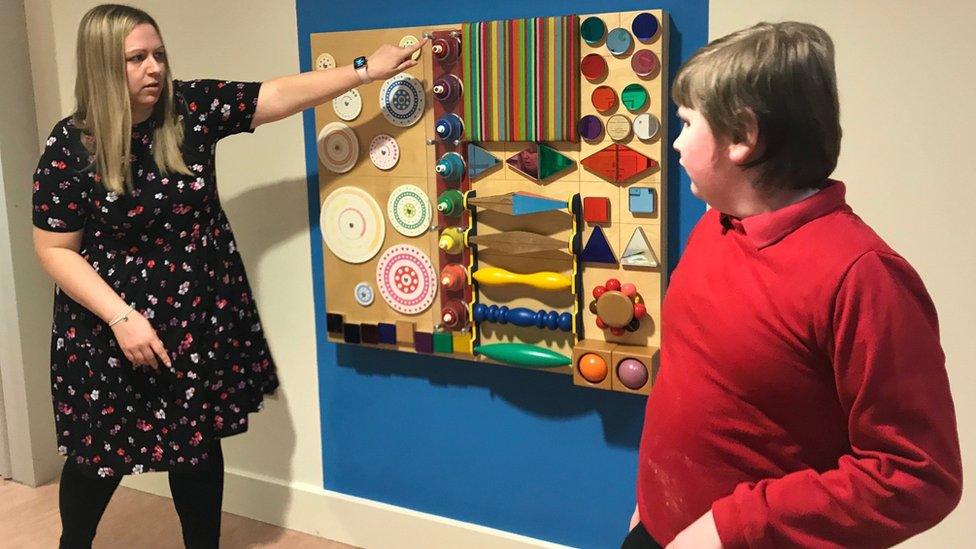
Just 20% of Crownbridge's pupils are in school during lockdown
"School for some of our children is the safety net, not only for the children but for the families," said Bethan Moore, acting head of Crownbridge Special School in Cwmbran.
"Sometimes it's just a bit of respite for the children to come to school."
About 20 of Crownbridge's 116 pupils have been going into school during lockdown while the rest remain at home and have been offered remote learning.
"It was kind of annoying at first, with the mask and because of Covid you can't do things," added Piers' school friend Amy, 19, who is also studying for a GCSE in maths.
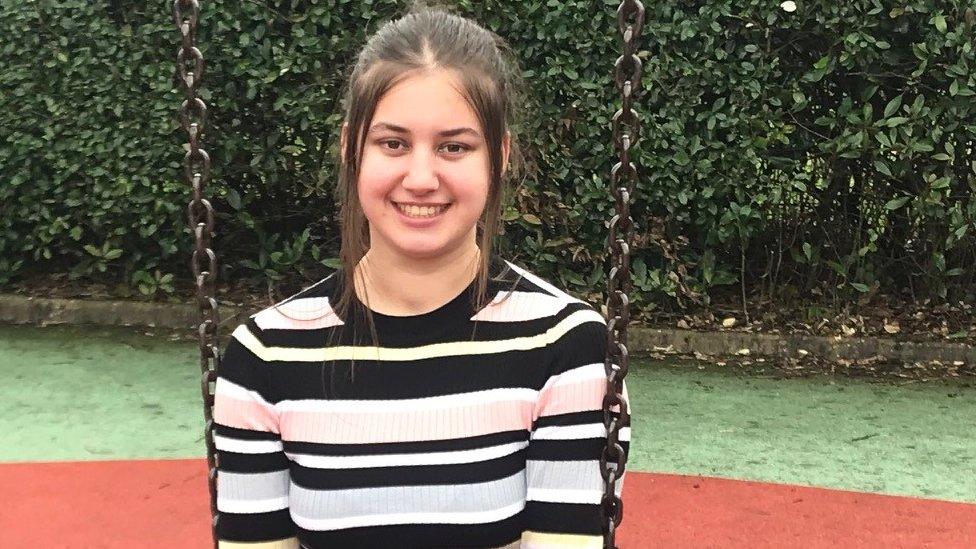
School "brings out the best" in final year student Amy
"But I haven't found it that bad as we've done some fun things."
Amy's mum Caroline, from Monmouth, said her daughter, who has autism, "thrived" in school as it "brings out the best in her".
"Since lockdown it has been particularly difficult," she said.
"But the school has made great efforts to engage with Amy at home and in school which is really important because Amy needs that routine, the teachers have made it fun.
"The online learning experience is new but it has taught her some new skills so the blended-learning approach has been positive."
Crownbridge, like all schools across the UK, has had to rapidly adapt to challenge of continuing education and mitigating the risks of Covid-19.
'Not missing out'
"Our teacher will send learning packs home each week with targets," said teaching assistant Megan Israel.
"The parents then send the work back and we put it in the children's folders to ensure the children are not missing out."
The "blended learning approach" is also applied to physio and exercise targets for pupils with more acute and physical needs.
But Ms Israel said it was important some pupils could attend school to use the specialist equipment "to meet their needs".
Teachers have worked closely with physiotherapists and speech and language therapists to ensure support is provided to families at home.
"We are concerned about the dip in their progress," added Ms Moore.
"But as far as Crownbridge concerned, we've been really good at working as a tight team, providing support for pupils and families who are blended learning at home."
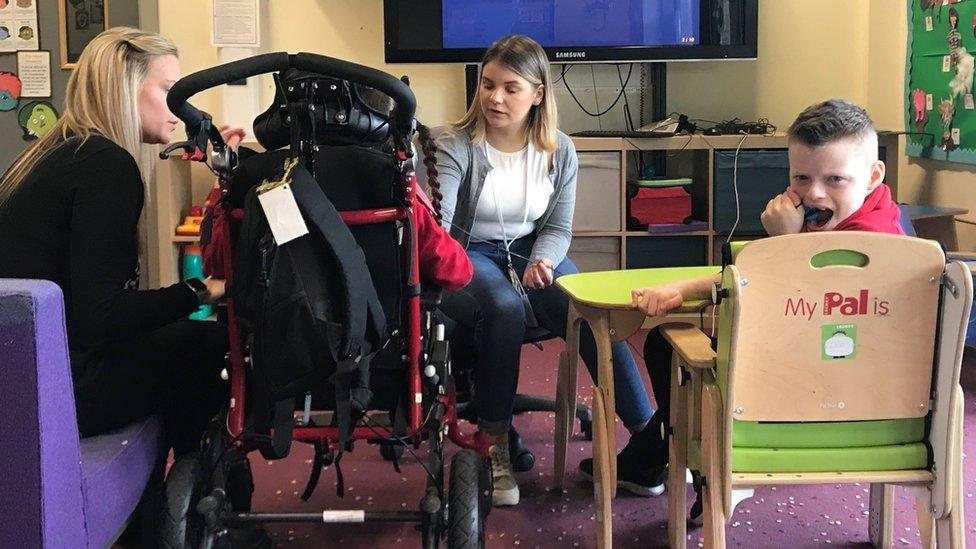
Crownbridge Special School has 116 pupils aged between two and 19 on its roll
Welsh Government guidance on Covid measures allows for "a practical and flexible approach" for children with special educational needs.
The school has established small contact groups and intensified cleaning on site and some facilities are shut, like their hydro pool or the hall where pupils would undergo physiotherapy.
Social distancing, masks and other coronavirus prevention measures can be more difficult to implement in schools like Crownbridge where many children have difficulty communicating and need physical interaction.
Staff wear face coverings around the school but Ms Moore says it becomes more difficult when they interact with the children "who rely on the mouth and the speech and language to communicate".
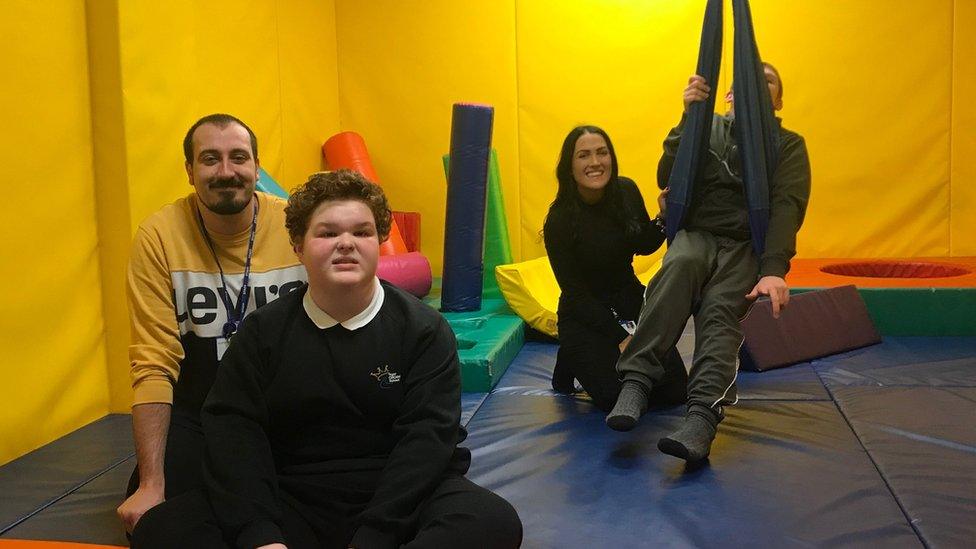
Some of Crownbridge's pupils need to use specialist equipment
The Welsh Government has pledged to vaccinate special school staff who provide intimate personal care for children - and Crownbridge's staff are waiting for their Covid jabs.
While there are limited numbers of children coming into school, they also provide opportunities for their pupils to learn from home, whatever their needs.
Teacher Bethan Stokes has teenagers Elliot and Shay in class doing some sensory maths by singing a song about numbers and asking them to use a fly swat to splat piles of cream with different amounts of cherries on the top.
After the excitement of making a mess in the classroom, they go to the sensory room to let off some steam.
"We try to keep it as normal as possible," said Ms Stokes.
"It's really difficult because obviously the children know things aren't normal because of the circumstances. I'm so proud of how they're coping."

BITESIZE CYMRU WALES: Educational programmes in English and Welsh
LOCKDOWN LEARNING: How can BBC Bitesize help you learn from home?

- Published29 January 2021
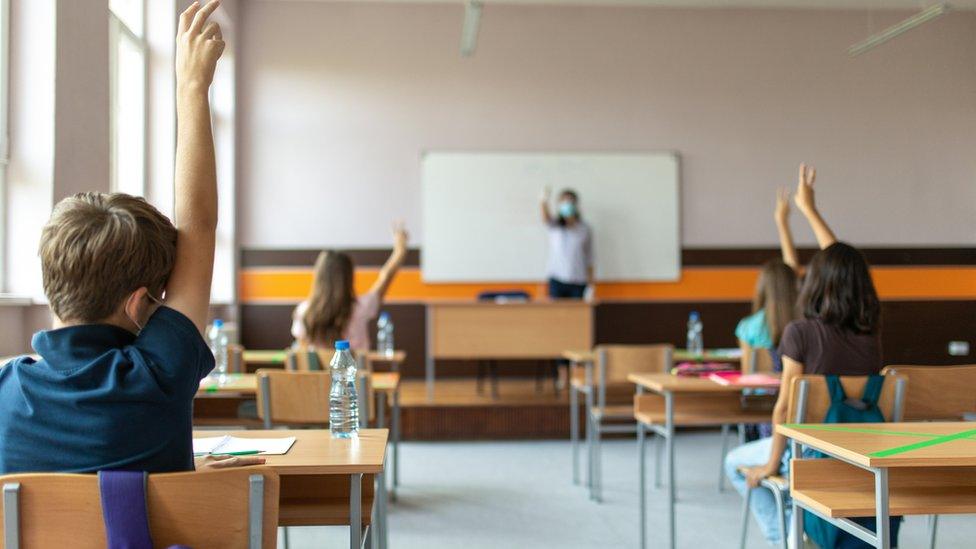
- Published22 January 2021
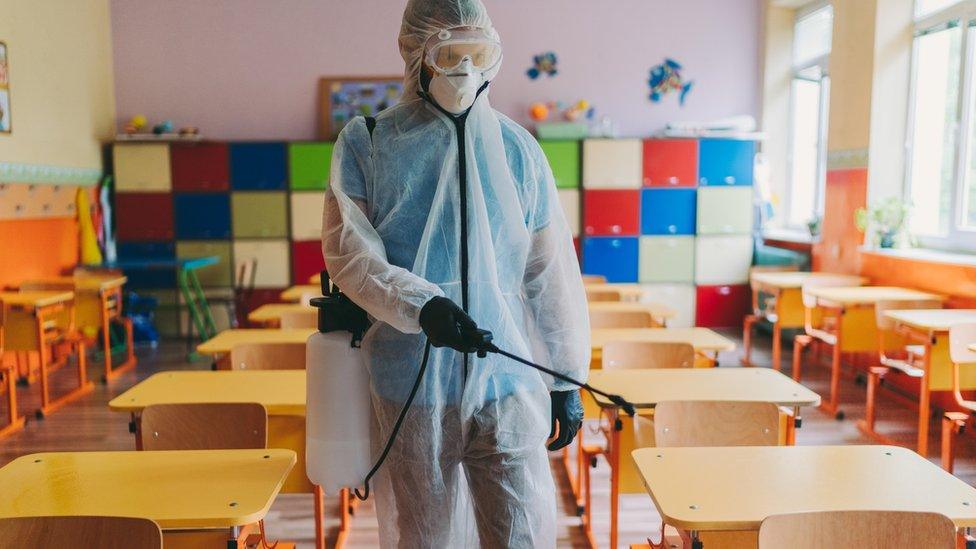
- Published13 January 2021
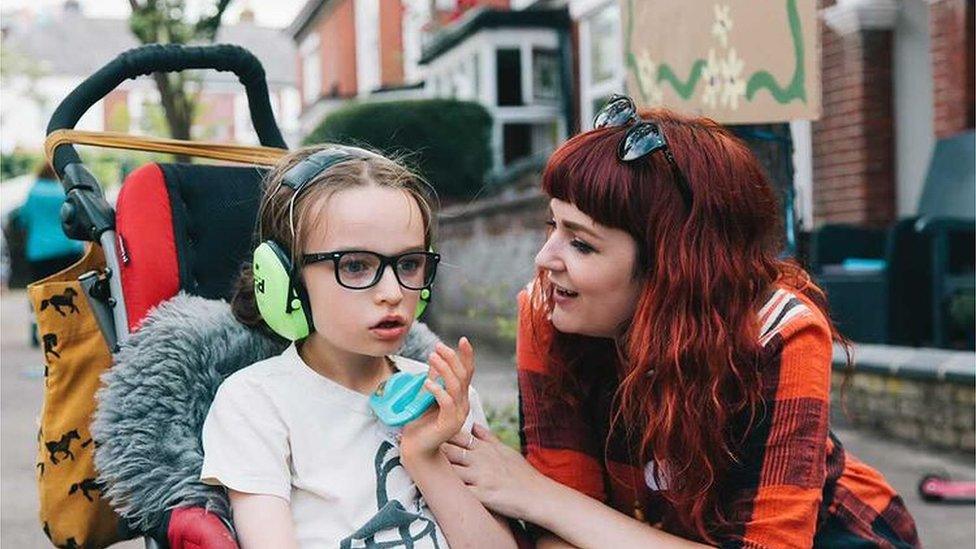
- Published7 January 2021
